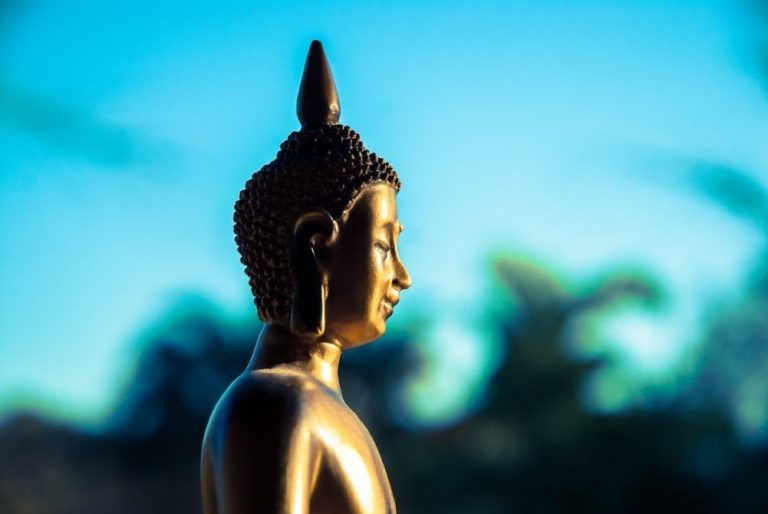We’ve recently been faced with a number of heartbreaking events that involve esteemed Buddhist teachers. These range from the shocking, as in the accidental overdose of the wonderful and inspiring Michael Stone, to the revolting case of the Tibetan Buddhist lama Sogyal Rinpoche, who was accused of coercing and intimidating numerous young women into ongoing sexual relationships, among other offenses.
While the family of Michael Stone and the victims of the alleged predatory monk are first in mind, such events also remind us of a very important issue: transparency between teachers and their students.
As the lead teacher of a Buddhist community for more than a dozen years, I feel it’s more important than ever that I, along with other spiritual leaders and authorities, practice disclosure to those we serve. And frankly, I’m dismayed that anyone who accepts the profound role of professing the dharma would choose to withhold significant issues that affect our ability to wisely counsel those who seek guidance.
Related: How Student-Teacher Relationships Go Awry in the West
I’m not suggesting that a spiritual figure reveal every personal issue they’re working through. But it is our fundamental duty to disclose any long-standing psychological disorders or addictions that impinge upon our emotional stability or interpersonal relationships. We should be rigorously open about these matters, as honesty is exactly what we should be offering to others.
In eastern Buddhism the concept of the teacher as indisputable, faultless, and unquestionable may fly, but the West is a different milieu when it comes to blind allegiance. As the Buddha said in the Kalama Sutta: “Don’t believe what anyone says, nor what’s written in holy texts; believe what you see to be true and harmless.”
Disclosure is even more essential as it helps demythologize the fantasy that Buddhist teachers have transcended the inexorable, universal human emotions and struggles. When spiritual figures present themselves with a social mask that suggests imperturbability, they do a great disservice to those they guide. If you believe that I’ve somehow risen above anger, which is a universal emotion, then you will feel there’s something wrong with you the next time you feel angry.
Believing that a teacher is emotionally composed at all times will only lead to disappointment for the practitioner. If I believed my teacher Noah Levine lived utterly without hardship or challenges, how would I greet my own challenges with kindness and compassion? Would I even be able to relate to him if he claimed perfection? Of course not. Fortunately I studied with Noah specifically because he was so up front with his own issues with addiction and recovery.
I’ve certainly got my fair share of challenges that I reveal in hopes of transparency and increased mutuality with those I teach:
- Until 1995 I was an active alcoholic and addict. I now have more than 22 years of continuous sobriety, thanks to my Buddhist practice and an array of 12 Step fellowships.
- Like so many other New Yorkers—and those around the world—I experienced an acute depressive episode after witnessing 9/11 firsthand.
- I have insomnia that flares up in tandem with anxiety, which I developed during a childhood spent cowering from a violent, alcoholic father.
- For a long period I experienced Irritable Bowel Syndrome symptoms when teaching at large gatherings.
- While I’ve have a daily meditation practice for decades, I often find those 30 to 40 minutes a challenge.
- Unlike so many of my fellow dharma teachers, I prefer short three- or four-day retreats over the long Vipassana-style endurance tests.
- While I’m not particularly possessive—and love to give things away—I do have a needless collection of gimmicky electronic gadgets, hoodies, shoes, and eyeglasses.
- At times I avoid individuals who I find to be annoying or aggressive, rather than taking the time to reveal my displeasure and set secure boundaries.
- Loneliness, dread, enviousness of others’ successes, and general physiological unease still visit me.
These issues require all of my spiritual practice, not to mention some psychological assistance, to address.
Related: Putting to Rest the Myth of the Heroic Self
There’s often little material reward for disclosing the truth. It doesn’t polish your reputation. But presenting an euphoric social mask, which many yoga and dharma teachers seem to excel at, isn’t a valid choice for me. Rather, it’s a form of unskillful speech that lacks integrity. As the Buddha taught his son, Rahula, the prerequisite for the spiritual path is honesty: “If you act, speak or think in a way that causes harm to yourself or others, reveal it to others on the path.”
To truly connect with other human beings, especially if we choose to teach, we must dare to present ourselves in ways that depict the true variety and complexity of our human experience. Without honesty there is no real bond between us and our practitioners, and without connection, nothing else really matters.
Thank you for subscribing to Tricycle! As a nonprofit, we depend on readers like you to keep Buddhist teachings and practices widely available.
